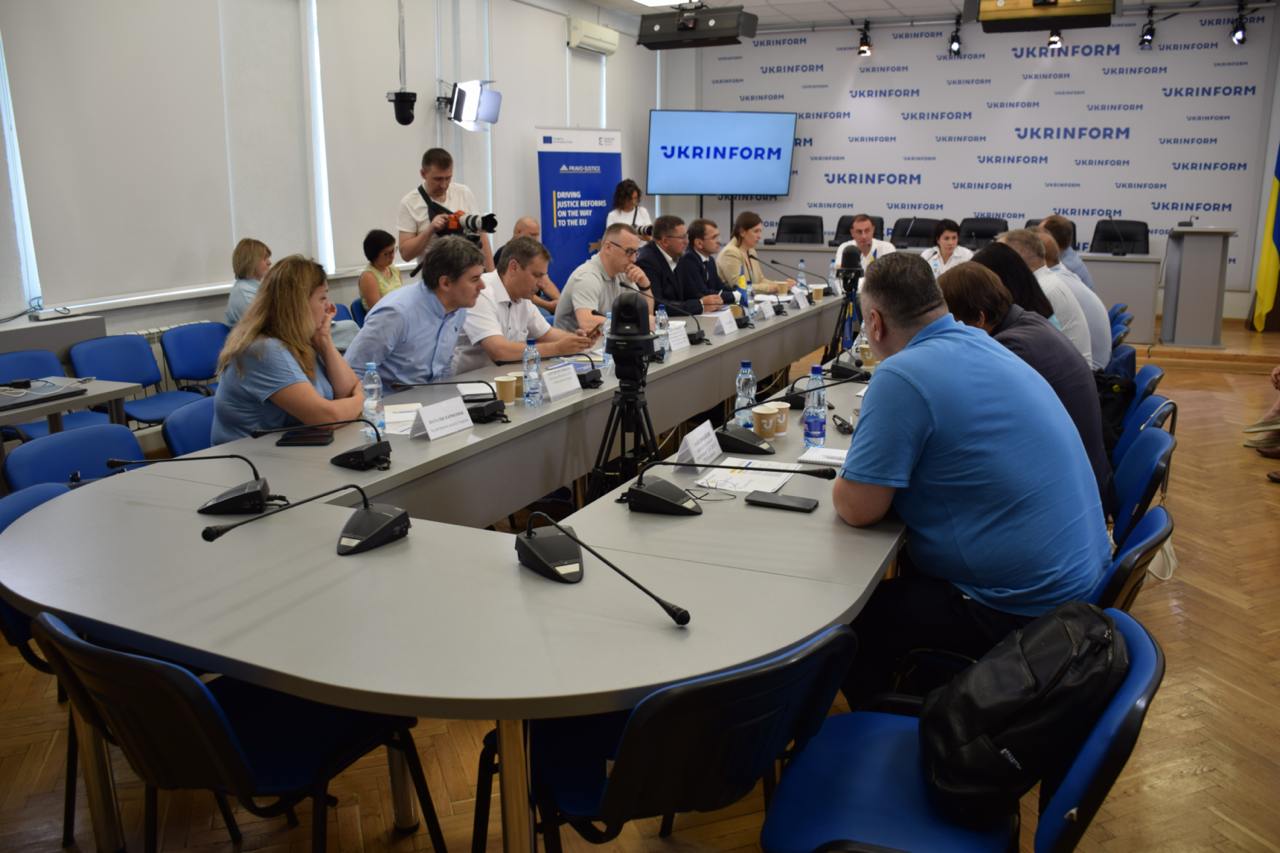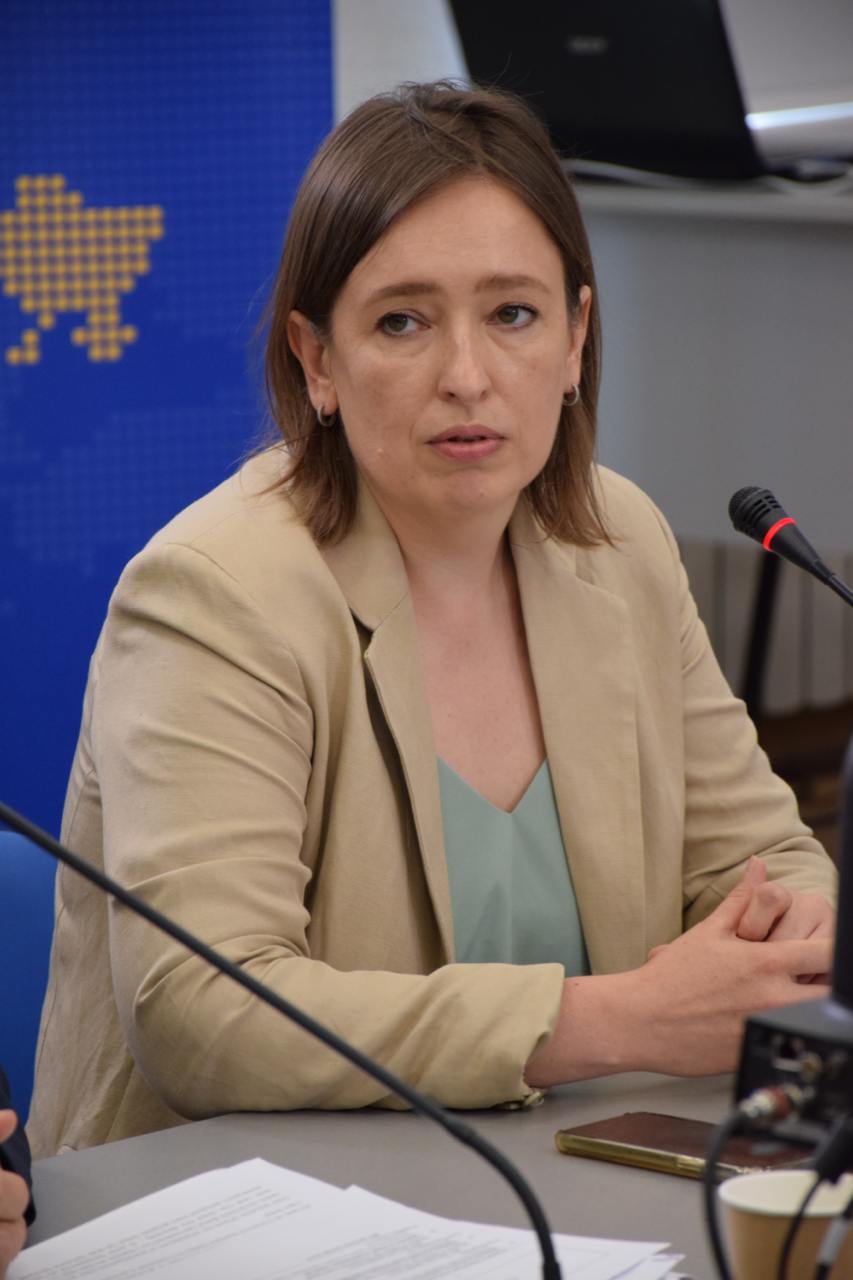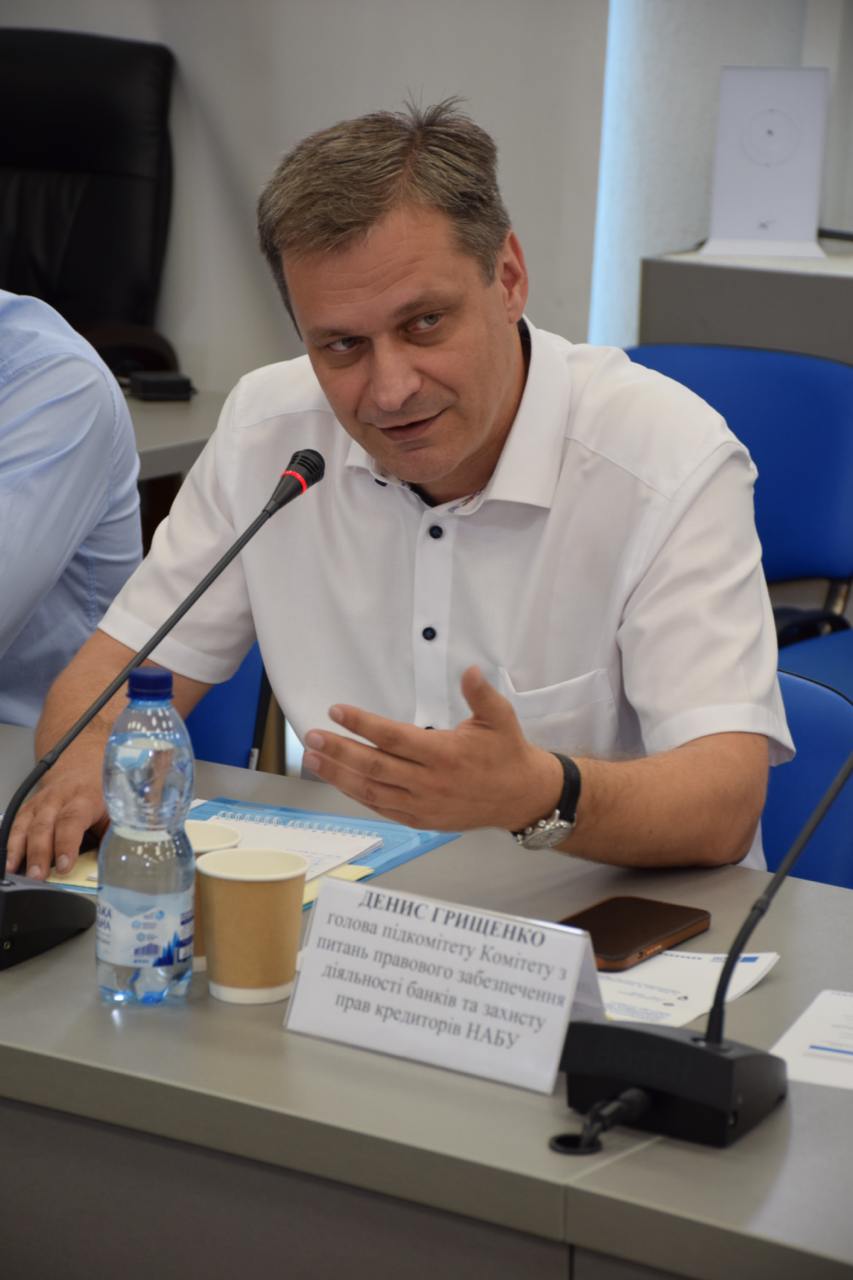EU Project Pravo-Justice Co-organised a Roundtable Discussion on the Draft Law on Preventive Restructuring

On 12 July, EU Project Pravo-Justice, together with the Competition Law Committee of the Ukrainian Bar Association held a roundtable discussion “Bankruptcy.net/Business Reboot: Preventive Restructuring as a Key to Success.” The event focused on discussing new opportunities to reduce the risks of business insolvency in wartime and developing recommendations to Draft Law No. 10143 on implementing Directive 2019/1023 of the European Parliament and of the Council of the European Union and introducing a preventive restructuring framework.
Representatives of the Parliament of Ukraine, the Ministry of Justice of Ukraine, the Audit Chamber, the National Association of Bankruptcy Trustees, Naftogaz Ukraine, the Canada-Ukraine Chamber of Commerce, the Independent Association of Banks of Ukraine, Supreme Court justices, lawyers, financiers, and national experts of EU Project Pravo-Justice participated in the discussion.
“Implementing the provisions of the Directive on Preventive Restructuring into national legislation is one of the elements of our progress towards the EU. The respective Draft Law No. 10143 is currently pending adoption by the Parliament in the second reading. Therefore, we need to discuss this document as we will soon be applying its provisions in practice,” said Oleksii Voronko, Chair of the Competition Law Committee of the Ukrainian Bar Association and event moderator. He emphasised that the legal community has high expectations regarding the new tool in insolvency procedures as it is quite fast, easy, cost-effective and reputationally appealing.

Iryna Zharonkina, Enforcement and Protection of Property Rights Component Lead of EU Project Pravo-Justice, noted that introducing a preventive restructuring framework is not only one of Ukraine’s European integration commitments but also part of the government’s Ukraine Facility plan. According to her, when it comes to getting ready to implement Directive 2019/1023, Ukrainian MPs, the regulator and stakeholders are much more responsive than their counterparts in EU Member States.
“Over the past eighteen months, Ukraine has accomplished the work that the EU countries have been doing for more than five years. And this is high-quality work. Drawing on the experience of many European countries, the Project experts analysed Draft Law No. 10143 - its provisions are, without exaggeration, advanced and provide a ‘second chance’ to regain solvency for businesses facing temporary financial hardships,” said Iryna Zharonkina.
Oleksii Movchan, Deputy Head of the Parliamentary Economic Development Committee, said that MPs must adopt the Draft Law on Preventive Restructuring in the second reading by the end of September. The MP noted that introducing a new insolvency framework is especially important now.
“The full-scale war has only aggravated the business landscape in the country. Missile attacks, massive internal and external migration of employees, and mobilisation all contribute to certain financial hardships for businesses. Draft Law No. 10143 provides for modern approaches and techniques to address insolvency of Ukrainian businesses,” said Oleksii Movchan.
Yulian Khorunzhyi, Senior Partner at Ario Law Firm, one of the drafters of Draft Law No. 10143, spoke about the philosophy behind the Preventive Restructuring Directive. The speaker noted that each provision of the document is balanced, meaningful and aims to rescue as many companies that are operating but are facing temporary financial hardships as possible, allowing them to retain their assets and defend their interests.
“The Directive says that each debtor is part of the macroeconomy. If we give the debtor a chance, we give the macroeconomy a chance to be stronger,” emphasised Yulian Khorunzhyi.

Oleksandr Bondarchuk, Chair of the Ukrainian National Association of Insolvency Trustees, said that implementing the Directive on Preventive Restructuring balances insolvency legislation and provides more opportunities for debtors to save their businesses.
“Preventive restructuring is a tool that honest businesses can use to get a second chance,” said Bondarchuk.
Oleh Vaskovskyi, justice of the Commercial Court of Cassation, said that Draft Law No. 10143 evokes professional interest among judges. He noted that it is essential that the Supreme Court that the provisions of the law on preventive restructuring are high quality, unambiguous and envisage clear monitoring to protect all parties to the process.
Serhii Zhukov, justice of the Commercial Court of Cassation of the Supreme Court, said that the unambiguous and clear provisions of the draft law directly reduce the risks of potential abuse by debtors.
Yurii Kryvosheia, Member of the Board of Directors of the Canada-Ukraine Chamber of Commerce, said that many foreign investors are ready to enter the Ukrainian market right now, not even waiting for the war to end. However, before investing, they thoroughly examine all the tools allowing them to do business with integrity, transparency and in line with international standards.
“Introducing preventive restructuring makes the country more attractive to investors,” said Yurii Kryvosheia.
The position of the Independent Association of Banks of Ukraine on Draft Law No. 10143 was voiced by Vasyl Hei and Denys Hryshchenko. They emphasised that the practical experience of dealing with bad debts has proved that litigation is inefficient, time-consuming and expensive.
“We consider preventive restructuring a tool that will help the debtor reach an agreement with the creditor. However, only bona fide debtors use this procedure for such an agreement to take place. Otherwise, creditors will be suspicious of such a mechanism,” said Vasyl Hei.